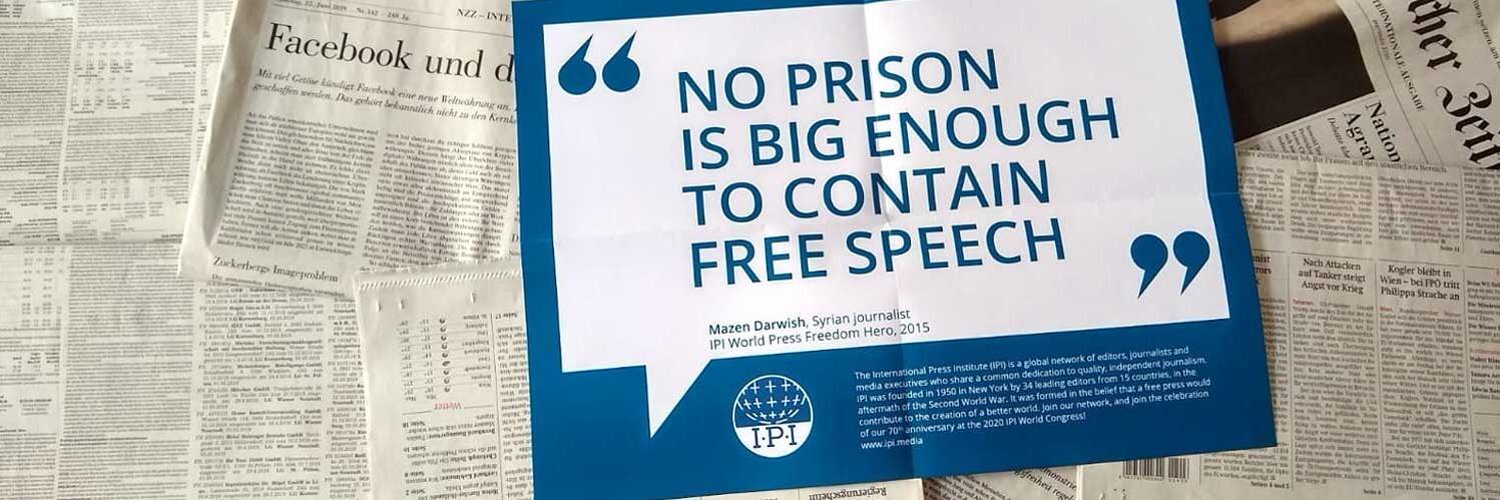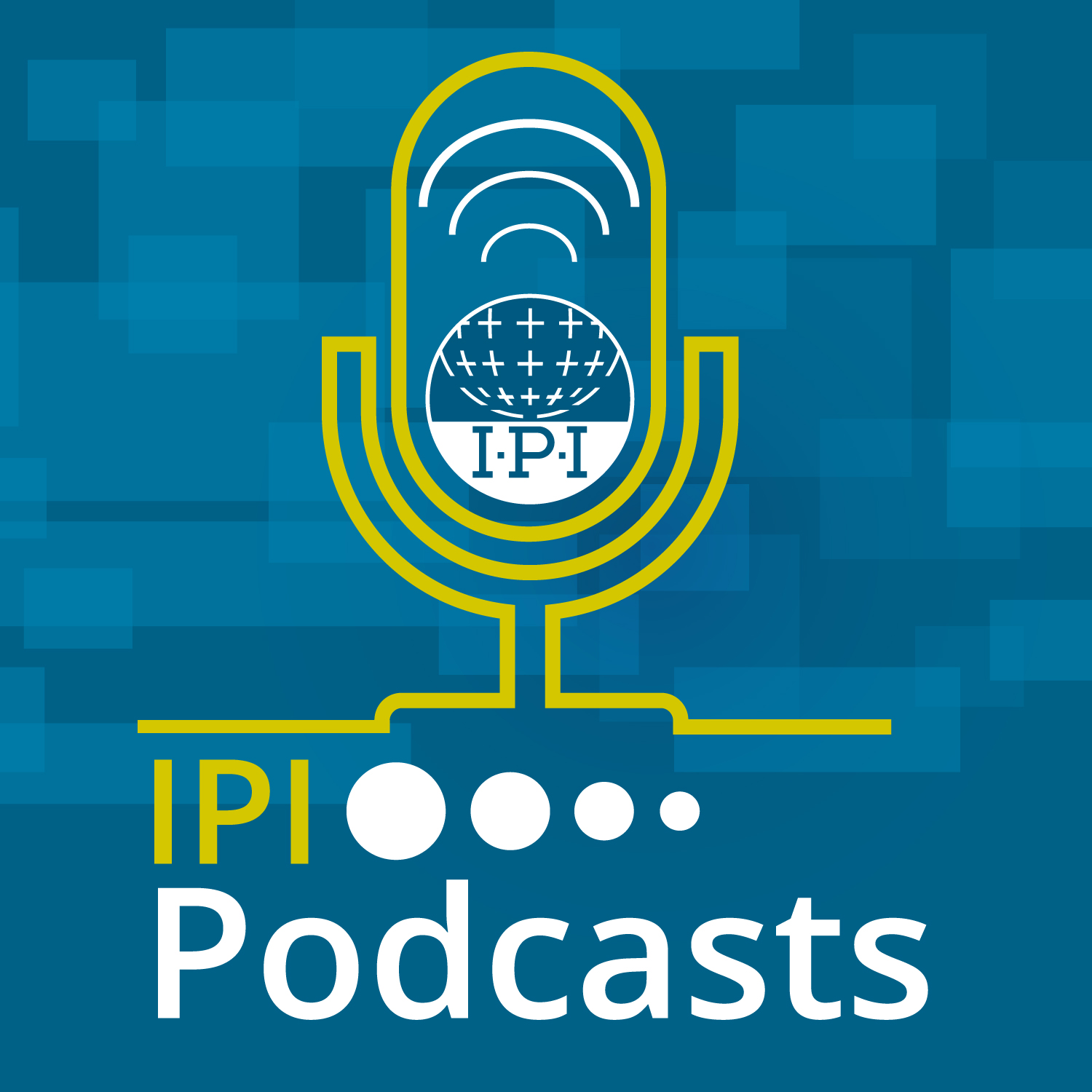Episodes

Friday Feb 16, 2024
Untangling media capture in Greece
Friday Feb 16, 2024
Friday Feb 16, 2024
Latest episode of Media Freedom In Focus podcast examines findings of new report on threats to independent media in Greece
Independent journalism and watchdog reporting in Greece faces challenges from many sides.
In the last few years, the country has experienced the broad-daylight murder of a crime reporter, multiple threats to the safety of journalists, a sprawling surveillance and spyware scandal and numerous vexatious lawsuits and legal threats against media and journalists, with detrimental consequences for Greek democracy.
However, these immediate challenges sit atop deeper historical and systemic issues including a problematic landscape for independent journalism, weak media pluralism, prolonged economic threats to media viability, entrenched capture of private media by powerful families and owners, and low levels of trust in media.
Greece suffers, in short, from media capture.
A new report, published on 30 January, looks in detail at this situation in Greece for the first time, with damning conclusions about the scale of media capture in Greece, and its impact on the country’s democracy.
Guests: Danai Maragoudaki, a journalist at Greek investigative media outlet Solomon, who also works for The Manifold
Producer and Host: Jamie Wiseman, Europe Advocacy Officer at International Press Institute (IPI)
Editor: Javier Luque, Head of Digital Communications at IPI
Other episodes in this series:
Navigating Hungary’s Sovereignty Protection Act - Media Freedom In Focus
Under illegal surveillance – the Greek ‘Predatorgate’ – Media Freedom In Focus
Related links:
New report examines media capture in Greece
Report: Stemming the tide of Greek media freedom decline
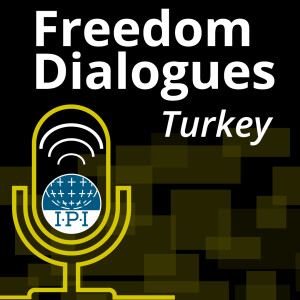
Wednesday Jan 31, 2024
(Handan Uslu) Teknoloji devlerinin hesap verebilirliği
Wednesday Jan 31, 2024
Wednesday Jan 31, 2024
Sunucu: Cansu Çamlıbel | Konuk: Handan Uslu
IPI Özgür Sohbetler: Türkiye podcast serisinin 44. bölümü yayında!
IPI Özgür Sohbetler’in yeni bölümünde gazeteci Cansu Çamlıbel’in konuğu siyasi mikro hedefleme, algoritmik manipülasyon ve dijital dirençlilik gibi alanlarda faaliyet gösteren Gözlemevi İnternet ve Toplum Araştırmaları Merkezi’nin kurucusu Handan Uslu’ydu.
Uslu; teknoloji şirketlerinin kullandığı algoritmaların dünyanın bilgi ekosistemini oluşturduğunu, Gözlemevi’nin bu firmaların özellikle içerik moderasyonu konusunda hesap verebilirlikten uzak olmasının doğurduğu ihtiyaç üzerine kurulduğunu ve merkez olarak kamuoyunun maruz kaldığı manipülasyon ve zararı ortaya koyan araştırmalar yürüttüklerini aktarıyor.
“Uyku düzeninizden ruh halinize, alışveriş alışkanlıklarınızdan siyasi eğiliminize kadar sizi sizden çok daha iyi tanıyorlar” şeklinde tanımladığı teknoloji şirketlerine hesap sorma yönünde net kriterler belirlemek gerektiğine dikkat çeken Uslu, bunu şöyle örnekliyor ve açıklıyor: “Veriyi işlerken, bu veriyi birine gönderirken ya da bu veri için bir hedefleme yaparken bunun için kullanıcının rızasını almak; kullanıcıyı (özellikle çocukları) +18 şiddet içeren içeriklerden korumak; ifade özgürlüğünü korumak ve nefret söylemini engellemek arasında iyi bir denge kurmak ve de bunun için gerekli operasyonları hayata geçirmek. Bu açıdan baktığımızda, yani beklentilerimizi çok daha net ve basit tutup bu yönde veri oluşturduğumuzda aslında bu firmaların politika ve uygulamalarını etkilemek mümkün.”
Sohbette değinilen konu başlıklarından bazılarını şöyle özetleyebiliriz:
- Gözlemevi’nin kuruluş amacı ve faaliyet alanları
- Türkiye’de büyük teknoloji şirketlerinin hesap verebilirliği ve içerik regülasyonunun mevcut durumu
- Seçim dönemlerinde sosyal medya platformları üzerinden yürütülen (başta siyasi mikro hedefleme olmak üzere) manipülasyon yöntemleri, bu yöntemlerin Türkiye’deki örnekleri ve ortaya çıkarılmasının önündeki engeller
- Siyasi manipülasyon ve dezenformasyonla mücadele etme yöntemleri
Bu kayıt, Avrupa Birliğinin (AB) maddi desteği ile hazırlanmıştır. İçerik tamamıyla Uluslararası Basın Enstitüsü (IPI) sorumluluğu altındadır ve Avrupa Birliğinin görüşlerini yansıtmak zorunda değildir.
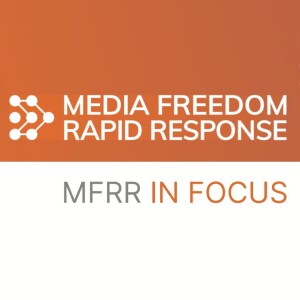
Thursday Jan 18, 2024
MFRR in Focus: The battle over the future of Poland’s politicized public media
Thursday Jan 18, 2024
Thursday Jan 18, 2024
A battle is currently underway for the future of Poland’s politicized public media. Since the election of the new coalition government led by Prime Minister Donald Tusk in October 2023, the public television TVP has faced drastic reforms.
The new Minister of Culture moved quickly to enact changes at TVP, Polish Radio and the state news agency, which had to different levels been converted into media arms of the former ruling party, Law and Justice.
After promising swift action during the campaign, the new pro-EU government temporarily took a news channel off the air, abruptly dismissed the supervisory bodies of TVP and the news agency, and more recently put the public media into liquidation.
While the Tusk administration has defended these moves as necessary to restore impartiality and dismantle the unethical and biased output of TVP, the former ruling party has criticized the changes as undemocratic and aimed at cementing a new form of political control.
While it’s clear that major reforms were urgently needed to Poland’s public media, there are questions about whether the means used to do so are democratic, legal and truly aimed at increasing pluralistic coverage, rather than simply perpetuating the cycle of politicization after elections that has characterized public media for decades.
Guests: Daniel Tilles, Editor-in-Chief at Notes From Poland
Producer and Host: Jamie Wiseman, Europe Advocacy Officer at International Press Institute (IPI)
Editor: Javier Luque, Head of Digital Communications at IPI
Other episodes in this series:
Navigating Hungary’s Sovereignty Protection Act - Media Freedom In Focus
Related links:
Poland: MFRR reasserts recommendations for democratic reform for press freedom and public media

Monday Jan 08, 2024
MFRR Podcast: Navigating Hungary’s new Sovereignty Protection Act
Monday Jan 08, 2024
Monday Jan 08, 2024
Latest episode of MFRR In Focus interviews Hungarian journalist Szabolcs Panyi about the potential impact of new law
The situation for Hungary’s embattled independent media is about to become even more challenging. On 12 December, the Hungarian parliament voted to pass the Protection of Sovereignty Act. It was debated for less than two weeks and passed without any serious public consultation.7 Its stated motivation is the protection of Hungarian sovereignty from malign external threats, and the criminalisation of foreign funding to political parties during election campaigns.
A new body will now be established to map and report on perceived threats to national sovereignty and identify bodies or individuals suspected of serving foreign interests or receiving foreign funds. In a country where government politicians have previously smeared some media as serving foreign interests, media have criticized the vague language of the law, and decried the bill as being part of the government’s decade-long attempt to dial up the pressure on critical voices.
Ahead of elections in 2024, and amidst ongoing negotiations with the European Commission over the release of frozen EU funds, the new law looks set to be another divisive issue pitting Budapest against Brussels – and create further uncertainty for media and NGOs.
In this episode of the MFRR In Focus, we spoke to renowned Hungarian journalist Szabolcs Panyi about the details of the law, what its real motivations are, and what impact it will have on the already destabilised independent media community.
Guests: Szabolcs Panyi, investigative editor at VSQUARE and investigative journalist at Direkt36
Producer and Host: Jamie Wiseman, Europe Advocacy Officer at International Press Institute (IPI)
Editor: Javier Luque, head of digital communications at IPI
Other episodes in this series:
Under illegal surveillance – the Greek ‘Predatorgate’
Related links:
Draft Sovereignty Protection Act poses fresh threat to independent media
IPI joins condemnation of passing of Sovereignty Protection Act

Sunday Dec 31, 2023
(Erol Önderoğlu) 2023 biterken Türkiye’de basın özgürlüğünün durumu
Sunday Dec 31, 2023
Sunday Dec 31, 2023
Sunucu: Cansu Çamlıbel | Konuk: Erol Önderoğlu
IPI Özgür Sohbetler: Türkiye podcast serisinin 43. bölümü yayında!
IPI Özgür Sohbetler’in yeni bölümünde gazeteci Cansu Çamlıbel, meslektaşı ve Sınır Tanımayan Gazeteciler (RSF) Türkiye Temsilcisi Erol Önderoğlu ile seçim yılında Türkiye’de basın özgürlüğünün durumunu konuştu.
Önderoğlu, 2023 yılının hukuk ve medya özgürlüğü değerlerinin siyasi bir amaç için araçsallaştırıldığı bir dönem olduğunu belirtti ve şu sözlerle devam etti: “Bu yıl Türkiye’de en az bir gününü hapishanede geçiren gazetecilerin sayısı 43. Ülkemizde tutuklama döngüsü o kadar hızlı işliyor ki, gazeteciler tutuklandıktan üç ay, altı ay veya bir yıl sonra tahliye oluyorlar. Yargı, belirli bir politik ortamı tatmin etmek için gazetecileri istediği zaman tekir olarak ya da grup halinde tutuklama keyfiyetine sahip.”
Basın özgürlüğü için dayanışmanın önemini vurgulayan Önderoğlu, tüm baskılara rağmen mesleğini sürdüren gazetecilerin ilham kaynağı oluşturduğunu söyledi ve şu sözleri ekledi: “Yaklaşık 30 yıldır bu gazetecilerin meslek yaşamlarını takip eden bir gazeteci olarak bugüne nasıl bu kadar sağlam geldiklerini ve onca tehdide rağmen nasıl bu kadar dinamik kalabildiklerini çok iyi anlayabiliyorum çünkü Türkiye demokrasisinin on yıllardır verdiği mücadele içerisinde, geçmiş kuşaklarımıza da baktığımızda, bu gazetecilerin çok dinamik ve kamuoyunu önceleyen bir yaşam tarzları ve perspektifleri olduğunu görüyoruz. Kamuoyunu aydınlatmak, şeffaf topluma hizmet etmek, olumsuzluğa ışık tutmak kadar insanı tatmin edebilecek başka bir şey olamaz. Biz de halen onca otoriter hamleye rağmen böyle kazanımlar üzerinden yaşıyoruz.”
Sohbette değinilen konu başlıklarından bazıları şöyle:
- Sınır Tanımayan Gazeteciler kuruluşunun çalışma prensipleri ve etik kodları
- Önderoğlu’nun Özgür Gündem gazetesiyle dayanıştığı için neredeyse sekiz yıl süren yargılanma süreci
- Son dönemde basına yönelik baskılar
- Türkiye’de basın özgürlüğü savunuculuğunun durumu
Bu kayıt, Avrupa Birliğinin (AB) maddi desteği ile hazırlanmıştır. İçerik tamamıyla Uluslararası Basın Enstitüsü (IPI) sorumluluğu altındadır ve Avrupa Birliğinin görüşlerini yansıtmak zorunda değildir.

Wednesday Dec 20, 2023
(Tolga Şardan) Bürokrasi ve suç ağında gazetecilik
Wednesday Dec 20, 2023
Wednesday Dec 20, 2023
Sunucu: Cansu Çamlıbel | Konuk: Tolga Şardan
IPI Özgür Sohbetler: Türkiye podcast serisinin 42. bölümü yayında!
IPI Özgür Sohbetler’in yeni bölümünde gazeteci Cansu Çamlıbel, T24 haber platformunun deneyimli köşe yazarlarından Tolga Şardan ile Türkiye'de bürokrasi ve suç ağları arasındaki ilişkiyi ve bu alanda gazetecilik yapmanın esaslarını konuştu.
Uzun süreli siyasi iktidarlarda bürokrasinin pervasızca hareket etme eğiliminin daha yüksek olduğunu ifade eden Şardan, “Türkiye’nin bugün yoğun bir suç gündemine sahip olmasının sebeplerinden biri de maalesef bu pervasız hareketler. Otokontrolün düşük olduğu ve siyasi iktidara yakın kesimlerin faydasına seyreden süreçler yaşandığını görüyoruz. Bu da ne yazık ki yargının, toplum dinamiklerinin, huzurun ve büyük ölçüde de demokrasinin önünde bir engel oluşturuyor” diye konuştu.
Geçtiğimiz Kasım ayında Şardan'ın tutuklanmasına sebep olan ve Türk Ceza Kanunu kapsamında 217/A maddesini oluşturan “dezenformasyon suçu” hakkında da konuşan Şardan, Türkiye'de gazetecilerin özellikle son 5-6 yıldır otokontrol/otosansür anlamında yaşadıkları sorunların arttığını ve yargıdaki benzer uygulamalarla bu sorunların gelecekte daha da artacağını düşündüğünü söyledi.
Sohbette değinilen konu başlıklarından bazıları şöyle:
- Tolga Şardan’ın 35 yılı aşan gazetecilik kariyerinin başlangıcı
- Türkiye’de suç ve bürokrasi ilişkisinin yakın geçmişi
- Genç gazetecilerin meslekteki devamlılığı
Bu kayıt, Avrupa Birliğinin (AB) maddi desteği ile hazırlanmıştır. İçerik tamamıyla Uluslararası Basın Enstitüsü (IPI) sorumluluğu altındadır ve Avrupa Birliğinin görüşlerini yansıtmak zorunda değildir.
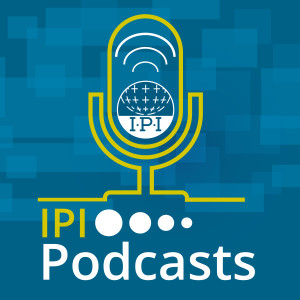
Thursday Nov 30, 2023
Environmental journalism: pursuing quality coverage of a global crisis
Thursday Nov 30, 2023
Thursday Nov 30, 2023
A recent study published by IPI under the title “The change we need: Strategies to support climate and environmental journalism” critically analyses different approaches adopted by media to produce and deliver fact-based, public-interest climate news.
The study also finds a clear need for more resources, strategies, training, and investment to ensure climate and environmental journalism reaches audiences and contributes to finding solutions to the crisis.
In this episode, experts on climate and environmental journalism discuss how to ensure the success of our environmental coverage, which types of content and formats address the needs of our audiences, which type of impact are we looking at generating and, most importantly, how to mobilize the necessary resources.
Link to report: https://ipi.media/climate-journalism-new-ipi-study-identifies-challenges-and-opportunities/
Guests:
- Alexandra Borchardt, media expert and lead author of the European Broadcasting Union (EBU)’s 2023 News Report: “Climate Journalism That Works – Between Knowledge and Impact”.
- Marta Frigerio, Editor in Chief, RADAR Magazine, Italy.
- Sarah Nordgren, Senior Climate Consultant of the Associated Press.
Host and Producer: Barbara Trionfi, media freedom expert and author of the IPI-NICHE report “The change we need: Strategies to support climate and environmental journalism”.
Editor: Javier Luque, Head of Digital Communications at IPI.

Thursday Nov 16, 2023
(Coşkun Aral) İsrail-Filistin savaşının gölgesinde savaş muhabirliği
Thursday Nov 16, 2023
Thursday Nov 16, 2023
Sunucu: Cansu Çamlıbel | Konuk: Coşkun Aral
IPI Özgür Sohbetler: Türkiye podcast serisinin 41. bölümü yayında!
IPI Özgür Sohbetler’in yeni bölümünde gazeteci Cansu Çamlıbel, deneyimli savaş muhabiri Coşkun Aral ile İsrail-Filistin savaşından yola çıkarak Aral’ın 45 yılı aşan savaş muhabirliği kariyerindeki tecrübelerini ve savaş dönemlerinde basın kuruluşlarının propaganda konusundaki rolünü konuştu.
İsrail-Filistin arasındaki son savaşta dünyanın önde gelen basın kuruluşlarının eleştiri konusu olan tutumlarını değerlendiren Aral, “Basının bazı felaket ve katliamlar karşısındaki sessizliği hep vardı. Lübnan İç Savaşı’ndan Romanya Devrimi’ne kadar pek çok farklı olayda benzer tutumları gördük. Bütün büyük yayın kuruluşları için geçerli bu” ifadelerini kullandı.
Savaş fotoğrafçısı Nick Ut’un Vietnam Savaşı'nın sembolü olan "Napalm kızı" fotoğrafı üzerinden sosyal medya çağının savaş ve çatışmalara etkisini de değerlendiren Aral, sosyal medyanın getirdiği imkanların savaşları durdurma gücü olduğunu ancak tamamen bitirme güçlerinin olmadığını söyledi.
Sohbette değinilen konu başlıklarından bazıları şöyle:
- Coşkun Aral’ın gazetecilik kariyerinin başlangıcı
- Türkiye ve yurt dışındaki gazetecilik anlayışı arasındaki farklar
- Ruh sağlığı açısından savaş muhabirliğinin zorlukları
Bu kayıt, Avrupa Birliğinin (AB) maddi desteği ile hazırlanmıştır. İçerik tamamıyla Uluslararası Basın Enstitüsü (IPI) sorumluluğu altındadır ve Avrupa Birliğinin görüşlerini yansıtmak zorunda değildir.

Thursday Nov 16, 2023
MFRR in Focus: Aftermath of Finland’s unprecedented state secrets conviction
Thursday Nov 16, 2023
Thursday Nov 16, 2023
Finland, "the land of the free press", made headlines in January this year, when two journalists were convicted of disclosing state secrets in the infamous Finnish Intelligence Research Center case.
In December 2017, Helsingin Sanomat, Finland’s leading daily newspaper, published an article about the activities of the Finnish Intelligence Research Center. The piece was the first in a series of articles aiming to shed light on plans to give Finland’s security services greater powers to carry out surveillance and covert operations domestically and abroad.
Soon after the publication, authorities opened an investigation into the newspaper and the authors of the article. Five years later, following a lengthy investigation and trial, the Helsinki District Court convicted journalist Laura Halminen and her colleague Tuomo Pietiläinen of disclosing state secrets.
On this podcast episode, we will have a closer look at the chain of events which lead to the landmark conviction, and how the long and unprecedented legal proceedings have affected press freedom in Finland and abroad.
Guests: Salla Nazarenko, International Affairs Specialist at the Union of Journalists in Finland and Riku Neuvonen, Associate Professor of Media Law, Researcher and Senior Lecturer of Public Law at Tampere University and University of Helsinki.
Producer and Host: Ronja Koskinen, Press Freedom Officer at IPI.
Editor: Ronja Koskinen, Press Freedom Officer at IPI and Javier Luque, Head of Digital Communications at IPI.

Monday Nov 13, 2023
MFRR In Focus: Media in Slovakia brace for populist PM’s return
Monday Nov 13, 2023
Monday Nov 13, 2023
Media freedom in Slovakia is heading into an uncertain new era, and a potential return to the past. On 16 October 2023, a new coalition government was formed following the closely contested general election in late September.
At the head of this new government is Robert Fico, the populist leader of the SMER party, which has joined together with centre-left HLAS and nationalist Slovak National Party.
For a country which has seen a process of rebuilding for media freedom in recent years following the murder in 2018 of Slovak journalist Jan Kuciak and his partner – there is a worrying sense of déjà vu
Fico was the Prime Minister when the murder took place and was topped by mass protests – ending a rule in which journalists became the target of verbal attacks and denigration by politicians.
His comeback has sparked renewed concerns that the fragile progress made under the former government is in jeopardy, and could even go into swift reversal, as the grudge-holding Prime Minister and his new cabinet move to settle old scores.
In this episode of the MFRR In Focus, we speak to one o the country’s leading editors-in-chief about where the potential flashpoints for media freedom will be in the months ahead, and what the future could hold.
Guests: Beata Balogova, Editor-In-Chief of Slovak daily newspaper SME
Producer and Host: Jamie Wiseman, Europe Advocacy Officer at IPI
Editor: Javier Luque, Head of Digital Communications at IPI
Other episodes in this series:
MFRR in Focus: Reforming Croatia’s controversial draft media law
Related links:
Analysis: How much has media freedom in Slovakia changed five years after Ján Kuciak murder?
Fifth anniversary of Kuciak and Kušnírová’s killing marked by fragile press freedom progress
Deepfake audio of Denník N journalist offers worrying example of AI abuse
